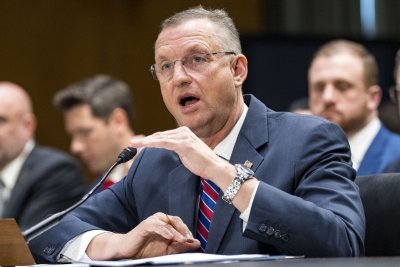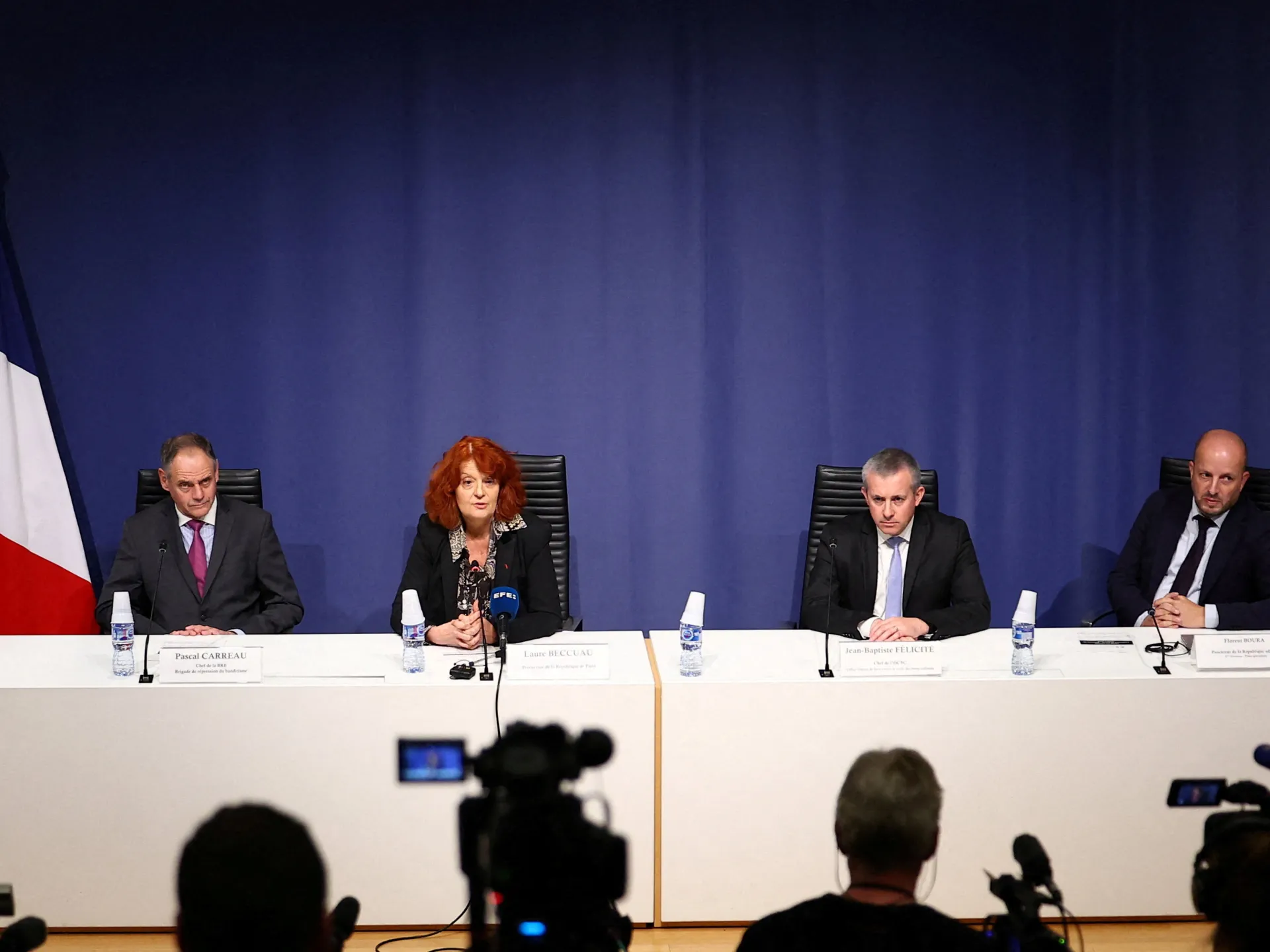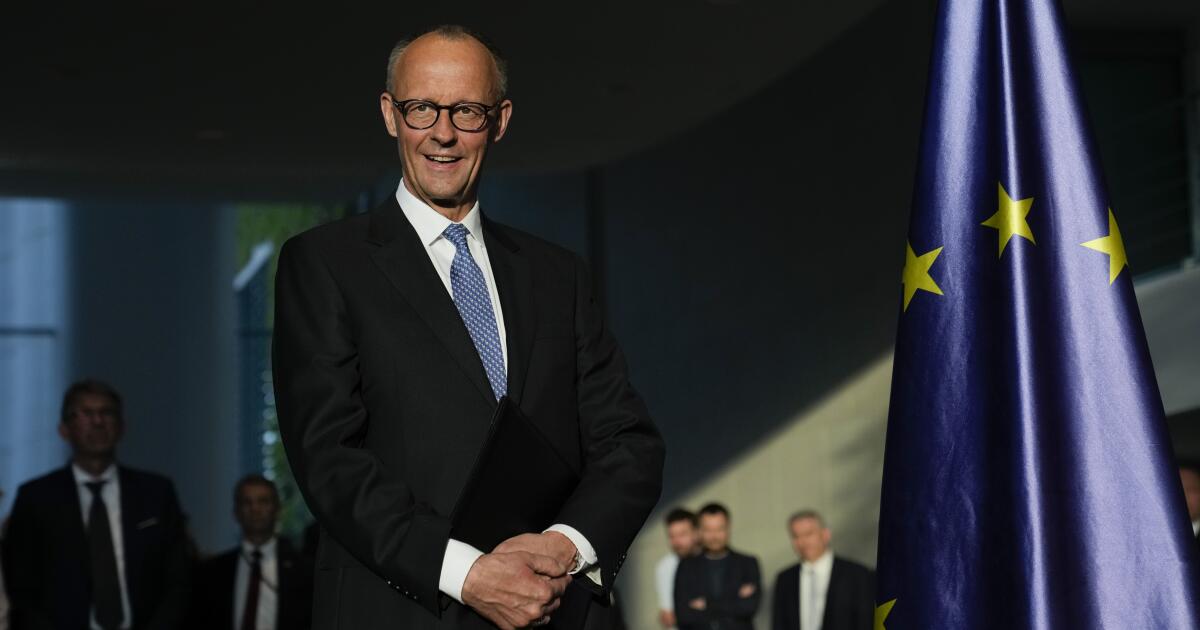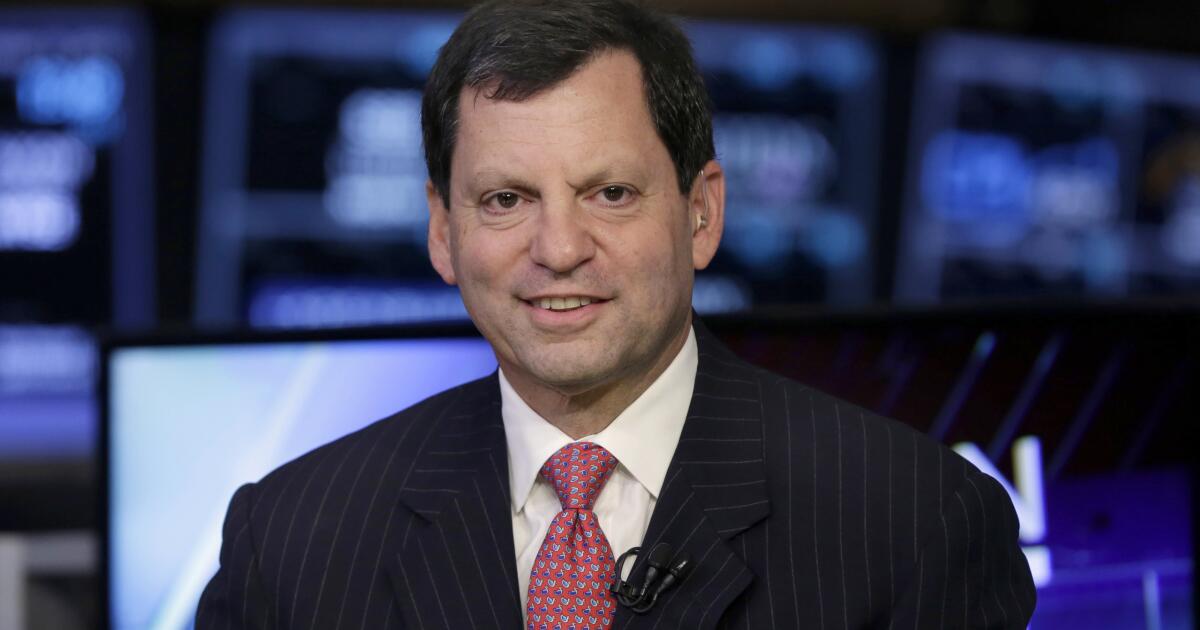Santander to make huge change to bank accounts in DAYS impacting 14million customers
SANTANDER is making a major shake-up to its services in just days — and experts warn it could leave customers in the dark about their own money.
From May 12, the high street banking giant, which serves 14 million people in the UK, will scrap five types of text message alerts that help users track account activity.
It means that anyone relying on messages to monitor deposits, withdrawals or weekly balances will soon stop receiving them — unless they switch to using Santander’s app or online banking.
The move has sparked concerns, especially for less tech-savvy savers who could miss out on key updates about their money.
The alerts being axed include:
- When a deposit over a certain amount is made
- When a withdrawal over a certain amount is made
- A weekly balance and transactions roundup
- When your balance reaches a specific limit
- When your balance falls below a set amount
Santander says it’s ditching the texts to push customers towards mobile and online banking, where they can access a “more detailed view” of their accounts.
However, it will continue to send regulatory alerts — such as warnings about overdraft use or activity that could lead to charges — as required by financial rules.
The bank wrote to customers in March confirming the change, first reported by The Sun, and said that these alerts were created “pre-mobile banking” and are now outdated.
Currently, most major banks — including Barclays, Lloyds, Nationwide and NatWest — still offer similar text alert services.
Consumer experts have warned the shift could leave some customers out of pocket, especially the 10% who don’t use apps or online banking and rely on text updates.
The change means those customers may need to manually check their accounts more often or risk missing large payments in or out.
At the time of the announcement, Consumer rights expert Martyn James said: “With the closure of the bank networks, it’s more important than ever that banks and financial institutions make sure we know about the important things that affect our money.
“Text alerts are vital as people actually read them and act on them. We forget about checking our online accounts – or go in to denial about them – and most people don’t read their app messages.
“So, this decision can only be a bad thing for consumers and I hope that it is reversed.”
Other Banking Changes
NatWest officially took over millions of Sainsbury’s Bank customers on May 1 after getting High Court approval in April.
The change affects personal loans, credit cards and savings accounts, which will now be moved over to NatWest gradually.
Elsewhere, Barclays slashed its Rainy Day Saver rate for the second time in just four months.
From May 5, interest fell to 4.61%, down from 4.87%, after it was previously cut from 5.12% in February.
Whilst, millions of Nationwide customers are hoping for a return of the £100 Fairer Share bonus.
The building society will announce whether it’s bringing the scheme back when it publishes its results on May 29.
Last year, 3.85million people shared a £385million payout.
And Lloyds Bank is hiking the fee for its Club Lloyds current account from £3 to £5 a month on June 2.
The increase also affects Club Lloyds Silver and Platinum customers — meaning some could pay up to £24 more a year if they don’t meet the minimum monthly deposit of £2,000.
How to check your activity in future
Santander customers who rely on these alerts will need to monitor their accounts more closely in future.
If you haven’t already, downloading the app is a convenient way to check your bank balance and any recent transactions on the go.
You can also log into your bank account online, but make sure to do so in a secure environment – it’s best to avoid public computers and networks if possible.
However, if you want to continue relying on text alerts, it could be worth switching to a different bank.
Most major high street banks offer a free text and email alert service. Check with the bank before switching to make sure it offers what you need.
Some banks currently have cash incentives to switch to them. For example, First Direct is offering up to £175 to switch to its current account, while you can still nab a £150 deal at Co Op bank until March 6.
How do I switch bank accounts?

SWITCHING bank accounts is a simple process and can usually be done through the Current Account Switch Service (CASS).
Dozens of high street banks and building societies are signed up – there’s a full list on CASS’ website.
Under the switching service, swapping banks should take seven working days.
You don’t have to remember to move direct debits across when moving, as this is done for you.
All you have to do is apply for the new account you want, and the new bank will tell your existing one you’re moving.
There are a few things you can do before switching though, including choosing your switch date and transferring any old bank statements to your new account.
You should get in touch with your existing bank for any old statements.
When switching current accounts, consider what other perks might come with joining a specific bank or building society.
Some banks offer 0% overdrafts up to a certain limit, and others might offer better rates on savings accounts.
And some banks offer free travel or mobile phone insurance with their current accounts – but these accounts might come with a monthly fee.
Meet the Jewish students speaking to US lawmakers about Columbia’s protests | Education News
Washington, DC – Jewish students involved in protests at Columbia University say their pro-Palestinian activism is driven by their faith – not in spite of it.
On Tuesday, a group of Jewish student activists met with members of the United States Congress in Washington, DC, to tell their stories, which they say have been left out of mainstream narratives about anti-Semitism on college campuses.
As student protests against Israel’s war in Gaza swept the country last year, Columbia University in New York became a flashpoint.
The university saw one of the first student encampments in the country, erected to demand an end to investments in companies complicit in human rights abuses. Shortly after the tents started popping up, the campus also witnessed some of the first mass arrests of student protesters in the Palestinian solidarity movement.
That visibility has made Columbia a focal point for President Donald Trump’s efforts to crack down on what he called “illegal protests” and campus anti-Semitism.
Earlier this year, Columbia student Mahmoud Khalil became the first student activist to be detained by the Trump administration and targeted for deportation.
Tuesday’s delegation of Jewish students came to Congress to push the case that Khalil and others like him should never have been detained in their name. They met with at least 17 Democratic legislators from both the House of Representatives and the Senate.
Al Jazeera spoke to several students who participated in the lobbying day, which was organised by Jewish Voice for Peace (JVP) Action, an advocacy organisation. Here are some of their stories:
Tali Beckwith-Cohen
Raised in upstate New York, history major Tali Beckwith-Cohen said she grew up in a community where Zionism was the norm. She remembers being told “myths” about Palestine as “a land without a people for a people without a land”: a slogan used to justify the establishment of Israel.
But as she began to learn Palestinian history and meet Palestinians, Beckwith-Cohen said her beliefs were challenged.
Eventually, after the war in Gaza began in October 2023, she became involved in Palestinian rights activism.
Human rights groups and United Nations experts have found evidence that Israel’s tactics in Gaza are “consistent with genocide”. More than 52,615 Palestinians have been killed in the conflict so far.
“For a long time, I had this kind of feeling of discomfort, this feeling of wrestling, this feeling of maybe cognitive dissonance, and how can I reckon these values I hold dear with Zionism?” Beckwith-Cohen told Al Jazeera.
“We are seeing the bombing, the disregard for human life, for children, for hospitals, for schools. It forced me to make a choice.”
She stressed that the protests were spaces of solidarity, where students of all backgrounds were committed to the idea that their safety is intertwined.
“There’s so much in the media narrative about what’s happening on Columbia campus that is just disingenuous and just so untrue to what we’ve experienced,” Beckwith-Cohen said.
“So we’re here today to tell our Congress people that what we’re seeing on campus is clearly an authoritarian, fascist crackdown on all dissent, not only students peacefully advocating for an end to genocide.”

Carly Shaffer
When Carly Shaffer voiced concern about the Israeli escalation in Gaza on a university WhatsApp chat, some of her fellow students questioned her Judaism.
Out of the hundreds of people on the chat, she remembers that Khalil – the activist arrested for deportation – was the only person who contacted her directly to reject the comments she was subjected to.
As she got to know Khalil, she came to view him as the “embodiment” of someone who cared about the safety of all students on campus.
Shaffer told Al Jazeera that she felt “sick” and “horrified” when Khalil was arrested. Her discomfort was then compounded when she saw that the Trump White House celebrated his detention on social media with the phrase “Shalom, Mahmoud” – a Jewish greeting repurposed as a taunt.
Shaffer, who is pursuing a master’s degree in human rights and social policy, grew up in California and was raised by a single mother in a low-income household.
She said speaking out against injustice – including in Palestine – is a practice rooted in her Jewish faith.
“The Columbia protest movement, it’s a movement of love. It’s a movement of solidarity,” Shaffer said. “And Jewish students are also integral and crucial to this movement.”
She said that, when Jewish student protesters held religious events on campus, their peers from the encampment joined them and inquired about their traditions.
“These are the same students who are being portrayed as anti-Semites, who are going out of their way to go and learn about Passover and celebrate a Jewish holiday with their Jewish friends,” Shaffer told Al Jazeera.
She decried the “weaponisation of anti-Semitism”, saying that the issue is being used to shut down conversations about Israeli atrocities in Gaza.
“Jewish students are being used as pawns in Trump’s political agenda,” she said. “And the weaponisation of anti-Semitism to dismantle this movement is not just a threat to Jewish students; it’s a threat to all of us. That’s why it is so important for us as Jewish students to directly correct this false narrative.”

Sarah Borus
Barnard College student Sarah Borus, who was arrested during the crackdown on the Columbia encampment, said she grew up in an anti-Zionist family in a “very Zionist community”.
She felt it was important for Jewish students like herself to convey their experiences directly to the people in power in Washington, DC.
“We’re talking to members of Congress to tell them our stories that are left out of mainstream news,” Borus told Al Jazeera.
“Trump’s mission is not about protecting Jewish students. It is about using fears of anti-Semitism – because of the way that the Gaza solidarity encampment was portrayed last year – in order to target non-citizen student activists, in order to target academic freedom, free speech, and really put many, many people in danger.”
When asked how she feels about the potential backlash to her activism, Borus acknowledged that the current political climate left her fearful.
“I’m scared, but in the grand scheme of things, I’m proud of the choices I have made,” she said. “I would not make any different ones, and I am willing to take on the risks, if that’s what must be done.”

Shay Orentlicher
Shay Orentlicher has no regrets about participating in Columbia University’s encampments, despite the administrative and political crackdowns.
Orentlicher said Christian nationalists are trying to erase the perspective of pro-Palestine Jewish students and define Judaism in a way that fits their political purposes.
But protesting against the killing of Palestinians, Orentlicher said, is an expression of both Jewish and humanist values. And Orentlicher believes that Columbia’s demonstrations have helped raise awareness nationwide.
“Despite the oppression we have faced, despite the suffering, and despite the despair of worrying that we have not done enough to stop the genocide, to stand up for Palestinians in Gaza and the West Bank, I think we have shifted the public discourse in a really important way,” Orentlicher said.
“And we also have built a really beautiful community. And I don’t regret what I did at all. I wouldn’t change anything.”
Raphie
Raphie, who chose to identify by his first name only, said he grew up “very Zionist”. But as he learned more about the conflict between Israelis and Palestinians, he felt he had been deceived.
“The Jewish elementary school I went to, for instance, had a map of Israel, and it was like a diamond – no West Bank or Gaza on it,” he said.
“When I saw the actual map with the occupied territories, I was like, ‘Wait, I was lied to.’ And that kind of made me go on this whole journey of exploring what Zionism is, what occupation is, what settler colonialism is.”
Raphie, who is studying maths, said the war on Gaza, the campus protests and the backlash the student protesters faced all made him feel a “personal responsibility to fight for what is right”.
In his experience, the demonstrations were welcoming, not anti-Semitic. What was anti-Semitic, he said, was the fact that the university targeted Jewish student protesters for their political views.
Several students, including Raphie, said Columbia refused to grant students associated with Jewish Voice for Peace the permission necessary to hold religious celebrations in public spaces. They described that rejection as a form of discrimination.
The university did not respond to Al Jazeera’s request for comment by the time of publication.
Raphie also drew a distinction between feeling uncomfortable about ideas that challenge one’s worldview and actually being unsafe.
“It’s normal in college to encounter new viewpoints, new perspectives. That’s how I became more pro-Palestinian and anti-Zionist,” he said. “I initially felt uncomfortable when I encountered anti-Zionist views, but then I grew to understand them. That’s normal.”
Raphie stressed that the real suffering is happening in Gaza.
“The students who are not safe right now, of course, are the students in Gaza. Every university in Gaza has been destroyed. They haven’t had food for 60 days.”
Dodgers’ bullpen fatigue leads to extra-innings loss to Marlins
MIAMI — Most of Tuesday’s game went according to plan for the Dodgers.
Tony Gonsolin produced a solid five-inning start in his second start back from Tommy John surgery, giving up just two runs.
Shohei Ohtani posted another monster stat line at LoanDepot Park, hitting a tying home run in the sixth and a tying double in the seventh in what he calls “one of my favorite stadiums” to play in.
Late in a 5-4 loss to the Miami Marlins, however, one of the Dodgers’ few early-season concerns turned into a glaringly costly problem — the game ending with journeyman reliever JP Feyereisen on the mound, giving up a walk-off single to Jesús Sanchez in the bottom of the 10th inning.
The Dodgers’ bullpen, quite simply, has been overworked through the first month-plus of the year. And in a game that came down to the final few innings, the toll of that strain became evident.
Entering the bottom of the sixth, the Dodgers were leading 3-2, having turned an early one-run deficit into a one-run lead after Ohtani and Freddie Freeman hit home runs in the top half of the inning. With Gonsolin done after 82 pitches manager Dave Roberts turned to his bullpen.
But it was not a high-leverage arm that came trotting in.
With all of his most trusted relievers having already pitched twice this trip — including appearances from top right-handers Evan Phillips and Kirby Yates the night before — Roberts instead summoned minor league offseason signing Luis García, seemingly hoping to steal an inning with the lower-leverage right-hander.
Granted, García had been decent this year, entering the game with a 3.78 ERA in his 13th MLB season. But he had already made 17 appearances in their first 35 contests. And on Tuesday, the Marlins wasted little time jumping all over him.
Designated hitter Agustin Ramírez led off with a double. Two batters later, Connor Norby did the same, hitting a line drive to left field that just evaded a leaping effort from Michael Conforto. That tied the score. Matt Mervis’ single in the next at-bat gave Miami a 4-3 lead.
The Dodgers (24-12) didn’t trail for long, Ohtani tying the score with a double that scored speedy Hyeseong Kim from first.
But after Alex Vesia, Anthony Banda and Tanner Scott posted zeroes to get the game to extras, Roberts was forced into another less-than-appealing pitching decision in the bottom of the 10th.
Claimed off waivers last week from the Arizona Diamondbacks, Feyereisen (a player the Dodgers once traded for before later releasing) came into the game — Roberts once again bypassing a better option, such as $13-million offseason signing Yates, out of obvious workload concerns.
Moments later, their defeat had been sealed, with Sánchez blasting his game-winning, bases-loaded single through a five-man Dodgers infield.
Indian missiles strike alleged terrorist targets in Pakistan

An Indian soldier guards a street of Srinagar, the summer capital of Indian-administered Kashmir, on Tuesday as Indian missiles struck targets in Pakistan in retaliation for a deadly terrorist attack that killed 26 in April. Photo by Farooq Khan/EPA-EFE
May 6 (UPI) — India’s military launched missile strikes against what it called “terrorist targets” in Pakistan early Tuesday morning following the recent deadly attack on Indian tourists in Pahalgam, Kashmir.
The Indian military launched Operation Sindoor by striking nine sites in Pakistan and Pakistan-administered areas in Jammu and Kashmir, ABC News, the Times of India and Al Jazeera reported.
Pakistani officials in Islamabad acknowledged the missile strikes and said there will be a response.
Pakistani Army officials said the missile attacks targeted Bahawalpur, Muzaffaabad and Kotli in eastern Pakistan and killed three people and injured 12 others.
The Indian Army declared “justice is served” after the missile strikes and blamed Pakistan for the deadly April 22 attack that killed 26 tourists in Pahalgam, which is known as the “Switzerland of India” due to its proximity to the Himalayan Mountains.
Several gunmen emerged from a wooded area and fired on a group of tourists before disappearing back into the wooded area.
The attack occurred in a remote valley that is accessible only by horse or on foot.
President Donald Trump called the missile attack a “shame” when asked for comment on Tuesday.
“Just heard about it,” Trump told reporters. “I guess people knew something was going to happen based on a little bit of the past. They’ve been fighting for a long time.”
Trump said he hopes for a quick end to the hostilities between India and Pakistan, ABC News reported.
U.S. Sen. Jeanne Shaheen, D-N.H., and a ranking member of the Senate Foreign Relations Committee, released a statement in which she said, “I implore the two governments to exercise restraint and prioritize diplomatic engagement. The world can ill afford instability in South Asia.”
A State Department official said they are aware of the reports but have no assessment to offer at the time.
Secretary of State Marco Rubio has been among U.S. officials who are working to minimize any retaliation by India after the terrorist attack.
Video of Diddy “assault [on accuser] can’t be underestimated” | Al Jazeera
“One thing that’s really going to matter is how Cassie Ventura, [Diddy] victim one, presents on the stand.”
Eric Faddis, a legal analyst, shares his insights on the start of Diddy’s court case and highlights what could shape the tone of the trial.
Genevieve O’Reilly on Mon Mothma’s pivotal ‘Andor’ speech
This story contains spoilers for “Andor” Season 2, Episode 9.
Senator Mon Mothma is finally, openly, part of the rebellion.
In the ninth episode of “Andor” Season 2, the senator from Chandrila, played by Genevieve O’Reilly, publicly denounces the Empire in a speech from her pod in the Imperial Senate.
“The death of truth is the ultimate victory of evil,” says Mothma as she challenges the official narrative spun to cover up the “unprovoked genocide” on Ghorman. “When truth leaves us … when it is ripped from our hands, we become vulnerable to … whatever monsters scream the loudest.”
She then declares Emperor Palpatine is a monster and becomes the Empire’s most prominent public enemy.
In established “Star Wars” lore, this is a moment that will directly lead to the formal declaration of the Rebel Alliance. It’s also one, according to O’Reilly, that Mothma has always been ready for.
“That’s the fulcrum of who the woman is,” says O’Reilly while seated in a Beverly Hills hotel bar last month. With branches of flowers hanging from the ceiling, the room’s decor is almost reminiscent of that of the Chandrilan wedding seen in earlier “Andor” episodes this season. “Underneath everything, [Mothma is] a woman who was always ready to set fire to her life. To step out of the shadows and to risk it all on behalf of others, to stand up and use her voice against oppression.”
“This is a woman who doesn’t ever pick up a blaster,” she adds. “Her only weapon is her voice, and it’s really amazing to get an opportunity to see her use it and to be impactful.”

Genevieve O’Reilly says Mon Mothma has always been ready to “to stand up and use her voice against oppression.”
(Kyle Galvin)
O’Reilly shares that when she first read the script for the episode — written by “Nightcrawler” filmmaker Dan Gilroy, who also wrote Episodes 7 and 8 — it only included bits and pieces of the speech. “Andor” is a show about ordinary people living through (and fighting against) an increasingly oppressive regime, and it’s not uncommon for sequences to jump between multiple storylines at the same time. Mothma’s speech was intended to be interwoven with other scenes, so the script just featured the key lines that would be highlighted.
But showrunner Tony Gilroy understood the actor and her process enough to know that O’Reilly would want to see more. Even before she had a chance to bring it up on her own, he asked her if she wanted the whole speech written out. He returned with the entirety of the speech within a day of her responding, “Yes, please.”
“That was everything for me because there is such a musicality to that speech,” O’Reilly says. “It starts off and talks about her history. It talks about this holy place that she has grown up in. What she believes the Senate to be. And then it ends with her calling him [out].”
And when the episode’s director, Janus Metz, one of the few who had also been given the full text of the speech, asked if she would want to film the whole thing, her response was “of course.”
“I went back and I worked on it,” O’Reilly says. “You carve it, and you create specific moments. As an actor, you’re part of the musicality of the piece. And then they used it, so that felt really special.”
For O’Reilly, the structure of “Andor’s” second season helped build toward Mothma’s moment with the speech. During the season’s first three-episode arc, audiences see Mothma, wife and mother, navigating deeply personal moments and the strains in her relationships at her daughter Leida’s (Bronte Carmichael) traditional, extravagant, marathon wedding in her homeland.
“The most unexpected, dramatic, sometimes messy things happen at weddings,” she says, pointing to the conversation Mothma has with Leida just before the wedding ceremony about her mother at her own wedding. “It felt deeply personal … Mon Mothma, in that very moment, she’s just opened herself completely and Leida just kind of sticks the knife in. So she has to button herself back up, figuratively put the mask back on, and go back outside … There’s no tricks. It’s really about relationship. It was really special.”

Leida (Bronte Carmichael), left, and Mon Mothma (Genevieve O’Reilly) share a moment at the former’s wedding.
(Lucasfilm Ltd.)
The next arc, which spans from Episodes 4 to 6, shows Senator Mothma in action as she tries to build a coalition to fight problematic policy as well as maintain her mask while unexpectedly having to interact with Krennic (Ben Mendelsohn), a man who represents everything she is fighting against.
“I could certainly feel it in every fiber of my body that she really wants to take him down,” says O’Reilly of Mothma’s mindset during their exchange. “It’s all she wants, but she can’t. She must stand there and spar a tiny bit, but in the end, she has to swallow what he’s serving because of the power he wields. And if she is exposed there, it’s all for nothing.”
She explains that “there is great danger” for Mothma as she manages the many masks she has to live behind while in the public eye.
“She’s stuck, but I think what the speech reveals in Episode 9 was that all of that was worth it,” O’Reilly says. “You could see what she had been holding all that time. You can feel it fly from her body.”
Mothma is a character O’Reilly has been playing on and off in various “Star Wars” installments for 20 years. Originally cast to play the younger version of the Rebellion leader portrayed by Caroline Blakiston in the 1983 film “Return of the Jedi,” O’Reilly first stepped into the galaxy far, far away for 2005’s prequel film “Revenge of the Sith” — though most of her scenes landed on the cutting room floor. She was then brought back to reprise the character in “Rogue One: A Star Wars Story,” the 2016 spinoff film that takes place directly after the events of “Andor.” She’s since portrayed the character in “Ahsoka” as well as the animated “Star Wars Rebels” (the latter of which is set during the same years as “Andor”).
“I could never have expected that 20 years later I would be here playing the most fleshed out, dexterous, rich, enriched version of this woman,” says O’Reilly.
In addition to Gilroy and his writing team, O’Reilly credits “Andor’s” hair and makeup designer Emma Scott and costume designer Michael Wilkinson for helping bring Mothma to life, especially this season. With Mothma being someone that is very deliberate in her wardrobe, O’Reilly says Wilkinson has “revealed character within the armor she chooses to wear each day.”

Perrin Fertha (Alastair Mackenzie), Mon Mothma (Genevieve O’Reilly) and Luthen Rael (Stellan Skarsgård) in “Andor.”
(Lucasfilm Ltd.)
While Blakiston’s Mothma did not have much screen time, O’Reilly says what audiences do see is “a woman who has a weight, a gravitas, but also who has a deep empathy” and, just as significantly, was a female leader of a rebellion in a movie filmed in the 1980s. And she has always understood Mothma to be deeply socially conscious — whether that was what drove her to join the Galactic Senate or if it was her work representing people for so many years that awakened her social consciousness.
“I don’t know which way that happened, but I definitely feel that in her bones,” O’Reilly says. “I think the window into her history, into that orthodox culture that she has grown up in, probably helps you see what motivated that drive.”
And in the two seasons of “Andor,” O’Reilly — as well as the audience — has finally been able to see a fuller picture of Mothma and her backstory, as well as some of the pain the character endured to become the Rebel Alliance leader “Star Wars” fans know.
“To have had the opportunity to come back and to really play, discover, and put flesh and blood and sinew and heartbeat into this woman, to really fill her out,” O’Reilly says. “She feels so beautifully human and complicated, and it’s really a version of her that I could have only hoped for.”
Conservative leader Merz overcomes historic defeat to become Germany’s chancellor
BERLIN — Conservative leader Friedrich Merz succeeded Tuesday in becoming Germany’s next chancellor, drawing applause and a palpable sense of relief in the parliament chamber after a historic loss in the first round of voting threatened the new government’s promises of stability.
No other postwar candidate for German chancellor has failed to win on the first ballot. The stunning but short-lived defeat sent shock waves throughout Europe and dragged down the stock market. The DAX, the index of major German companies, fell by 1.8% at one point.
The first round of voting, which was conducted by secret ballot, could affect Merz’s prospects for success and bring trouble to his coalition’s agenda, which includes reviving a stagnant economy and dealing with the rise of the far-right, anti-immigrant Alternative for Germany party.
As the most populous member state of the 27-nation European Union and the continent’s biggest economy, Germany is Europe’s diplomatic and economic heavyweight. Many had hoped Merz’s ascension would help the continent navigate the war in Ukraine and the confrontational trade policy of U.S. President Trump.
“The whole of Europe, perhaps even the whole world, is watching this second round of elections,” Jens Spahn, the head of the center-right Union bloc in the German parliament, said before the final vote.
The aftermath
Merz had been expected to easily win the vote to become Germany’s 10th chancellor since World War II, but the first ballot in the lower house of parliament unexpectedly left him with 310 votes — well short of the 328 seats held by his coalition.
Hours later in the second round, he earned 325 votes, surpassing the 316 needed to pass in the 630-seat Bundestag.
Because the votes were cast secretly, it was not immediately clear — and might never be — who defected from Merz’s camp.
Merz’s coalition is led by his center-right Christian Democratic Union and its Bavarian sister party, the Christian Social Union. They are joined by the center-left Social Democrats led by outgoing Chancellor Olaf Scholz, who lost the national election in February.
Volker Resing, Merz’s biographer, said Merz and his new ministers must now focus on the day-to-day business of running the country.
“Tomorrow, this government must work, and it must make people forget how it started,” he said. “It must now show that it can get the economy going again. … It must show that it can get illegal migration under control, and it must show that there is leadership again in Europe, especially in light of the threat from the east.”
Merz did not directly address his first-round loss Tuesday evening in his first speech after being sworn in, saying only that he was grateful to be elected “in the second round of voting.”
“So here we go. I am looking forward to the new task, and I am looking forward to working with you all in this house in a spirit of trust,” he said.
80th anniversary of World War II
Tuesday’s voting came on the eve of the 80th anniversary of Nazi Germany’s unconditional surrender in World War II. The ballots were cast in the restored Reichstag building, where graffiti left by victorious Soviet troops has been preserved at several locations.
The shadow of the war in Ukraine also loomed over the vote. Germany is the second-biggest supplier of military aid to Ukraine, after the United States.
Ukrainian President Volodymyr Zelensky said Tuesday that he seeks more European and transatlantic leadership from Germany after Merz’s win.
“Ukraine is deeply grateful for the support of Germany and its people,” Zelensky wrote on X. “Your helping hand has saved thousands and thousands of Ukrainian lives.”
Overall, Germany is the fourth-largest defense spender in the world, according to the Stockholm International Peace Research Institute, which studies trends in global military expenditures. Only the U.S., China and Russia are ahead.
Germany rose to that rank thanks to an investment of $107 billion for its armed forces, a measure passed by lawmakers in 2022.
Defense spending rose again this year when parliament loosened the nation’s strict debt rules. The move has been closely watched by the rest of Europe as the Trump administration has threatened to pull back from its security commitment to the continent.
Germany and the Trump administration
The U.S. administration has bashed Germany repeatedly since Trump’s inauguration in January. Trump, who has German roots, often expressed his dislike of former Chancellor Angela Merkel during his first term.
This time around, Trump’s lieutenants are at the forefront. Tech billionaire and Trump ally Elon Musk has supported Alternative for Germany for months. He hosted a chat with co-leader Alice Weidel that he livestreamed on X this year to amplify her party’s message.
It is the biggest opposition party in Germany’s new parliament after it placed second in February’s elections. Despite its historic gains, it was shut out of coalition talks because of the so-called firewall that mainstream political parties have upheld against cooperating with far-right parties since the end of the war.
Vice President JD Vance, during the Munich Security Conference in February, assailed the creation of the firewall and later met with Weidel, a move that German officials heavily criticized.
Last week, the German domestic intelligence service said it has classified the party as a “right-wing extremist” organization, making it subject to greater and broader surveillance.
The decision by the Federal Office for the Protection of the Constitution prompted blowback from U.S. Secretary of State Marco Rubio and Vance over the weekend. Germany’s Foreign Ministry hit back at Rubio after he called on the country to drop the classification.
The domestic intelligence service’s measure does not amount to a ban of the party, which can be imposed only through a request by either of parliament’s two chambers or by the federal government through the Federal Constitutional Court.
Merz has not commented publicly on the intelligence service’s decision.
Dazio and Grieshaber write for the Associated Press. AP videojournalist Fanny Brodersen in Berlin and writer David McHugh in Frankfurt, Germany, contributed to this report.
Italian Open: Petra Kvitova wins first match since giving birth, Sonay Kartal reaches second round
Two-time Wimbledon champion Petra Kvitova won her first match since the birth of her first child, then said she had been close to quitting tennis.
The Czech claimed a 7-5 6-1 win over Romania’s Irina-Camelia Begu in the first round of the Italian Open in Rome.
Her victory ended a run of four defeats since the 35-year-old returned to competitive action after 15 months away during which she gave birth to her son Petr.
Kvitova, who won Wimbledon in 2011 and 2014 and reached number two in the world, said she had doubted whether she would return to the international arena.
“I was 95% that I would never come back. I had enough of tennis at that time. I was like, ‘I can’t do it any more’ – so we decided to try for a baby,” she told the Women’s Tennis Association (WTA) website.
“I didn’t say anything because it wasn’t 100%. When I could do something finally after pregnancy, I played some tennis and it felt so good. I was laughing. Every shot I hit smoothly, I was like, ‘Wow – it’s still there’.”
Kvitova will now play world number 36 Ons Jabeur of Tunisia in the second round of the tournament played on the clay courts of the Foro Italico.
What we know about Israel’s new plan for Gaza | Gaza
Israeli Prime Minister says Palestinians in Gaza will be relocated to the south during a ‘new phase’ of intense military operation, with reports suggesting that Israel is considering occupying the entire enclave and taking control of aid distribution.
Published On 6 May 2025
US and China to start talks over trade war this week
Business reporter
China Correspondent
 Getty Images
Getty ImagesUS and Chinese officials are set to start talks this week to try to deescalate a trade war between the world’s two biggest economies.
Chinese Vice Premier He Lifeng will attend the talks in Switzerland from 9 to 12 May, China’s Ministry of Foreign Affairs says.
US Treasury Secretary Scott Bessent and US Trade Representative (USTR) Jamieson Greer will represent Washington at the meeting, their offices announced.
Since returning to the White House, President Donald Trump has imposed new import taxes on Chinese goods of up to 145%. Beijing has hit back with levies on some goods from the US of 125%.
But global trade experts have told the BBC that they expect negotiations to take several months.
It will be the first high-level interaction between the two countries since Chinese Vice-President Han Zheng attended Trump’s inauguration in January.
Mr Bessent said he looked forward to rebalancing the international economic system to better serve the interests of the US.
“My sense is that this will be about de-escalation, not about the big trade deal, but we’ve got to de-escalate before we can move forward,” he said in an interview with Fox News.
“If the United States wants to resolve the issue through negotiations, it must face up to the serious negative impact of unilateral tariff measures on itself and the world,” a Chinese commerce ministry spokesperson said on Wednesday morning.
Chinese State Media reported that Beijing had decided to engage with the US after fully considering global expectations, the country’s interests and appeals from American businesses.
The report added that China’s is open to talks but reiterated that if the country decides to continue to fight this trade war – it will fight to the end.
The trade war has triggered turmoil in financial markets and sent shockwaves across global trade.
Two trade experts told the BBC that they were not particularly optimistic about the talks, at least in the initial phase.
“You have to start somewhere, so I’m not saying it isn’t worthwhile. Just unlikely to be the launch event people are hoping to see,” said Deborah Elms, Head of Trade Policy at the Hinrich Foundation.
“We should expect to see a lot of back and forth, just like what happened last time in 2018,” Henry Gao, Professor of Law at Singapore Management University and a former Chinese lawyer on the World Trade Organization secretariat said.
“I would expect the talks to drag on for several months or even more than a year”.
Financial markets in the Asia-Pacific region were mixed after the announcements, while US stock futures rose.
Stock futures are contracts to buy or sell an underlying asset at a future date and are an indication of how markets will trade when they open.
Investors are also waiting for the US central bank to make its latest announcement on interest rates on Wednesday afternoon.
Additional reporting by Bianca Mascarenhas

Follow the twists and turns of Trump’s second term with North America correspondent Anthony Zurcher’s weekly US Politics Unspun newsletter. Readers in the UK can sign up here. Those outside the UK can sign up here.
Piers Morgan visibly disgusted as Kanye West’s pal says he finds anti-Semitism ‘funny’
US rapper Kanye West abruptly walked out of his most recent interview with Piers Morgan, who later blasted the rapper’s conduct in a scathing public statement
Piers Morgan has reignited his feud with Kanye West, following yet another explosive encounter that ended with the rapper abruptly leaving their interview.
On Piers Morgan Uncensored, Kanye cut the interview short after just four minutes when he accused Piers of ‘patronising’ him because the TV presenter mistakenly said that he had 32 million followers on X – rather than 33 million followers.
Piers, 60, was adamant about questioning the rapper, 47, about his anti-Semitic posts on X after he claimed that all Jews are ‘slaves’ and that they should be ‘whipped’. Kanye also horrified social media users earlier this year in a vile outburst on X where he claimed that he ‘loved Hitler’.
However, after Kanye stormed off camera after Piers mistakenly got his X following count wrong, the TV presenter was left with Kanye’s right-hand-man and online influencer, Sneako.
A baffled Sneako, who has also recently faced bans on certain platforms, said: “That’s it for Ye. Nice to meet you, Piers.” However, he stayed to reluctantly listen to some tough questions on behalf of Kanye, with Piers asking if he ever intended to do a proper interview.
Sneako said: “You know what you are doing? I think you were trying to patronise very intentionally by getting those two things under his skin.”
A defiant Piers then replied: “We called him Ye,” before he went on to say that the pair had kept the crew waiting for almost 22 hours before eventually turning up for the interview.
Sneako said it “was funny” and he also refused to answer queries about Ye’s antisemitism and comments glorifying Hitler and bashing Jewish people.
The influencer said he was out working with the star to help him “fulfil his vision”, adding he refused to “speak on his [Ye’s] art or his vision”.
Defending having him on the show, Piers said: “The reason I wanted to get him on was because I don’t think anyone holds him to account for anything he does on X, and in fact, he deliberately breaches all of X’s rules, and yet he does it with impunity and is allowed to do it, whereas millions of other accounts get suspended for far less offences.
“So I was going to ask him directly, why I mentioned his X following, I was going to ask him about what he puts on X and why he does this? Why he continually attacks Jewish people, why he continually celebrates Adolf Hitler?”
On his anti-semitic comments, and referencing ‘whipping Jews’, Sneako said he found the whole subject ‘funny’. He laughed as he told Piers: “I’m pretty sure it’s a joke because I’ve been here for a couple weeks [in Spain] and he hasn’t whipped any Jews.”
Piers concluded: “Tell him from me he’s a snivelling, little coward, and he’s an anti-semite and a Hitler worshipper. That’s what I would have asked him if he’d had the b***s to sit there and take the questions.”
The outspoken broadcaster took to Instagram to break the news, posting a photo of a visibly disgruntled Kanye and captioning it with biting sarcasm: “UPDATE: I interviewed Kanye West again today.
“As I expected, given what I’ve said about him recently, it didn’t last long or go well. This was him right before he stomped off like a big baby before I could ask him why he’s become a vile, Hitler-loving, Nazi-slathering, anti-Semitic p***k. Drops on @piersmorganuncensored later…”
As expected, reactions flooded in. Some followers praised Piers for holding firm, with journalist Rosanna Lockwood calling it “the caption to end all captions” and adding a clapping emoji. Others were less impressed, with one commenter cheekily reminding him, “I love this and ur honesty piers but u also stormed off like a big baby.”
This isn’t the first time the pair have clashed. Back in 2022, they went head-to-head in a combative sit-down on TalkTV. The conversation was intense, unfiltered, and stretched over two hours – until Kanye, then still going by Ye, reached a breaking point and walked off mid-filming.
Morgan later described the fallout, saying that retrieving the rapper after his dramatic exit proved to be “quite a struggle.” Nevertheless, he was ultimately relieved that Ye returned. As he told viewers at the time: “I’m glad I did because we ended up getting to where I think in his mind he wanted to get to. I think he wanted to atone for what he had done and the damage he had caused. But he was too fired up and too proud to actually go there until we got towards the end.”
Despite that, Morgan didn’t mince words in his assessment of the rapper’s views, branding him “racist,” “horribly homophobic,” and “pro-Hitler.” Since then, Ye has only courted further backlash, continuing to post incendiary content across his social media platforms.
In one of his most recent tirades, he once again targeted ex-wife Kim Kardashian, this time through an expletive-heavy livestream where he vented frustration about their ongoing co-parenting struggles. The 47-year-old rapper’s anger reached a boiling point as he accused the reality star, 44, of obstructing his role as a father.
It’s far from the first time he’s aired grievances online. Just two months ago, in March, Ye posted – and quickly deleted – threatening messages aimed at Kim, ominously stating he was prepared to “go to war” with her. The couple’s divorce, filed by Kardashian in 2021, continues to be mired in public drama.
Like this story? For more of the latest showbiz news and gossip, follow Mirror Celebs on TikTok , Snapchat , Instagram , Twitter , Facebook , YouTube and Threads.
Foreign Office issues Brits travel warning for parts of Pakistan and India

It is not safe to travel to parts of Pakistan and India, according to the Foreign Office, which has spoken out after India fired missiles across the border into Pakistani-controlled territory
Source link
Alberta’s premier would allow a citizen-led referendum on separation from Canada
VANCOUVER, British Columbia — The premier of Canada’s oil-rich province of Alberta said Monday she will hold a referendum on separation from Canada next year if a citizen-led petition reaches the required number of signatures.
Speaking on a livestream address, Danielle Smith said she personally does not support the province leaving Canada and expressed hope of a “path forward” for a strong and sovereign Alberta within a united Canada.
“Should Ottawa, for whatever reason, continue to attack our province as they have done over the last decade, ultimately that will be for Albertans to decide,” she said. “I will accept their judgment.”
Smith’s announcement comes just one week after Prime Minister Mark Carney led the Liberal Party to a fourth consecutive federal government. It also comes as U.S. President Trump continues to threaten Canada with tariffs and talk of the country becoming the 51st state.
Carney and Trump met in the White House on Tuesday.
A participant holds a fabricated U.S./Canadian flag Saturday outside the Alberta Legislature in Edmonton, following the federal election victory of Prime Minister Mark Carney’s Liberals and the tabling of new independence-related legislation by Premier Danielle Smith’s government
(Artur Widak / NurPhoto / Getty Images)
Smith’s United Conservative government recently introduced legislation that, if passed, would reduce the bar petitioners need to meet to trigger a provincial referendum.
The bill would change citizen-initiated referendum rules to require a petition signed by 10% of eligible voters in a previous general election — down from 20% of total registered voters. Applicants would also get 120 days, rather than 90, to collect the required 177,000 signatures.
Smith accused previous federal Liberal governments of introducing different legislations that hamstring Alberta’s ability to produce and export oil, which she said has cost the province billions of dollars. She also said she doesn’t want the federal government meddling in provincial issues.
“We don’t ask for special treatment or handouts,” she said. “We just want to be free to develop and export that incredible wealth of resources we have. Freedom to choose how we provide healthcare, education and other needed social services to our people, even if it’s done differently than what Ottawa has in mind.”
Smith has met with Carney and said he “had some promising things to say about changing the direction of his government’s anti-resources policies.”
Smith said her government will appoint a negotiation team to try to bring an end to federal policies that have long irritated the province. She also will chair an “Alberta Next” panel hosting a series of town halls to hear ideas and grievances from Albertans.
John Soroski, a political scientist at MacEwan University in Edmonton, said while there is anger in the province, he isn’t sure if it will lead to voting to separate.
“These grievances are serious,” he said. “I think the prospects of separation are highly unlikely.
The largely French-speaking province of Quebec held referendums in 1980 and 1995 over separation. Both failed.
Soroski said Smith may be following the lead of Quebec politicians who have used the threat of separation when dealing with the federal government.
“I don’t see Smith wants separation, but I think it’s very useful for the province to have in its back pocket the idea that there’s this large number of discontented Albertans,” he said.
Smith said she will work with Carney “in good faith” but wants “tangible proof of real change.”
Morris writes for the Associated Press.
WNBA star A’ja Wilson’s debut Nike shoes sell out within minutes
A’ja Wilson is one of the biggest names in basketball.
Not only is she a two-time WNBA champion, a three-time league MVP, a two-time Olympic gold medalist and an NCAA champion, but Wilson now has her own signature sneakers.
A’ja Wilson debuted the ‘Pink A’ura’ edition of her Nike A’One sneakers Tuesday.
(Courtesy of Nike)
The first wave of online sales of the “Pink A’ura” edition of her Nike A’One shoes began early Tuesday morning. It also ended early Tuesday morning.
It took only five minutes for the kicks to sell out, Nike confirmed to The Times. But fear not, Wilson told her fans in an Instagram story later in the day.
“This morning was wild,” the Las Vegas Aces star and former South Carolina standout wrote. “If you missed the A’One, don’t worry. We’re dropping again Thursday at Nike stores and other spots everywhere.”
Additional A’One sneakers in different colors are also scheduled to be released later this month, including the “OG Pearl” edition on May 15.
In a statement, Nike said of Wilson: “Her debut shoe selling out in minutes is testament to her extraordinary talent and her impact on and off the court. We’re excited to see the response and look forward to bringing more A’One’s to Nike doors and marketplace partners throughout May.”
Nike hyped the sneakers’ release in recent days by dropping a pair of cinematic video ads — one directed by Jenn Nkiru, the other by Malia Obama, both featuring an earworm of a jingle set to the tune of “Mary Mack” (with new lyrics that start, “A’Ja Wilson’s on top, top, top …”).
“It’s special,” Wilson told Desert Wave Media of the release of her first shoe. “It really is. I’m so glad that a long two years of hard work is coming to life and everyone can enjoy it.”
V.A. secretary says job cuts would improve efficiency

May 6 (UPI) — Veterans Affairs Secretary Doug Collins on Tuesday accused Democrats of fearmongering while they oppose proposed cuts to the Department of Veterans Affairs workforce.
Reports have suggested Collins wants to eliminate more than 80,000 VA jobs, but he told the Senate Committee on Veterans Affairs that number is a goal and not a hard target.
Collins told the committee he wants to reduce the VA’s workforce by 15%, which would mean firing more than 80,000 workers, but that goal has not become a reality.
Democrats have suggested such a workforce reduction would harm services for veterans, but Collins said no one is looking to fire doctors or nurses who work for the VA, the New York Times reported.
The VA so far has fired 2,400 workers and intends to end 585 contracts, NBC News reported.
Collins told committee members he would like to eliminate another 70,500 non-essential positions within the department to make it more efficient.
“The department’s history shows that adding more employees to the systems doesn’t automatically equal better results,” he said.
The agency would keep its health care workers but fire interior designers and staff whose jobs involve administering diversity, equity and inclusion policies that President Donald Trump eliminated via an executive order.
The quality of VA-provided health care and benefits would not harm veterans and other beneficiaries, Collins told the committee.
He said reducing the size of the VA’s workforce would increase the agency’s productivity and get rid of waste.
For example, removing DEI initiatives would save the VA an estimated $14 million, Collins said.
The VA has about 470,000 employees who provide services for 9.1 million people.
Sen. Richard Blumenthal, D-Conn., accused the VA of “totally lacking” accountability and said the proposed workforce reduction could be a disaster for the people it serves.
“It is a disaster that is on the horizon, approaching us as surely as a thunderstorm in the nation’s capital,” Blumenthal said.
Seeking funds to rebuild, Lebanon government works to regain donor trust | Israel attacks Lebanon News
Beirut, Lebanon – More than five years into an economic crisis that sent inflation spiralling and saw the Lebanese lira plummet, Lebanon’s government is facing its biggest infrastructure project in years: Post-war reconstruction.
After 14 months of war with Israel, Lebanon needs $11bn to rebuild, according to World Bank estimates.
But, experts say, donors do not trust the Lebanese political class, which has a track record of funnelling construction contracting money to politically connected businessmen.
The needs
In addition to more than 4,000 deaths, the war took a vast material toll on the country already reeling from a multi-year economic crisis.
About 10 percent of the homes in Lebanon – some 163,000 units – were damaged or destroyed, to say nothing of the more than $1bn in infrastructure damage.
Most observers, and the new government formed in February, say Lebanon will again need foreign aid, as it did after a previous war with Israel in 2006.
But that aid has been slower to arrive than in 2006, with donor attention divided between Lebanon, Syria, and Gaza, and major donors like the United States pushing for the Hezbollah group’s disarmament as a precondition.
Hezbollah, until recently the most powerful political and military force in the country, suffered severe blows during the war and has seen its power curtailed, although many Lebanese continue to support it.
The country’s south, east, and Beirut’s southern suburbs bore the brunt of Israel’s offensive. Together, they are home to most of Hezbollah’s constituents, so restoring their homes and livelihoods is a priority for the party.
That translates into leverage for foreign donor states.
The problem
Politically connected companies overcharged the state’s main infrastructure buyer, the Council for Development and Reconstruction (CDR), by 35 percent between 2008 and 2018, a 2022 study by local think tank The Policy Initiative found.
And the primary contracting regulation was so riddled with exceptions that as little as 5 percent of tenders were under the Central Tenders Board’s oversight.
All that came to a head in 2020, when a huge blast in Beirut’s port tore through much of the capital and donors decided they wanted nothing to do with the state, according to Khalil Gebara, economist and former World Bank consultant who previously advised the Lebanese government.
“Donors stopped transferring money to national authorities or to the treasury,” he said, because they had “a total lack of trust in national mechanisms”.
Instead, donors controlled spending directly or via a World Bank-managed trust fund, or worked through NGOs, Gebara added.
That year, the state, which was stalling on implementing International Monetary Fund conditions in exchange for a partial bailout, spent just $38m on its physical investments, down from more than $1.1bn in 2018, the year before the economic collapse, according to Ministry of Finance data.

Trying for solutions
A year later, Lebanon passed what many considered a landmark reform to state contracting, one of the few reform laws passed in recent years.
It dragged virtually the entire public sector into one unified framework, abolished a classification system that had frozen out contractors without political connections, and created a new regulator – the Public Procurement Authority (PPA).
As crisis-ridden state agencies were corralled into the new system, public investment continued to fall, hitting below $10m in 2022.
“Procurement is going to be a big thing … and absolutely the test for the procurement system and for the regulatory authority,” said Lamia Moubayed, head of an in-house research and training institute at Lebanon’s Finance Ministry.
Rana Rizkallah, a procurement expert at the same institute, says the law is solid, but it’s up to the government to implement what it promised, adding that a crucial part of that is staffing the regulator.
The PPA is supposed to be a board of five members backed by a team of 83 staffers but, three years after the law went into effect in 2022, it has a single member and five employees overseeing 1,400 purchasing bodies.
A four-member complaints board that the law established also has yet to be formed, so complaints still go to Lebanon’s slow, overburdened courts.
Jean Ellieh, the regulator’s president and sole member, says the state doesn’t have the “logistical capacity” to recruit dozens of regulators in one fell swoop, but he’s put in a request for new hires.
“We will work with determination and resolve, regardless of our capabilities,” Ellieh told Al Jazeera. “We will not give anyone an excuse to evade the application of the law.”
He added that donors have expressed “satisfaction” with the PPA’s abilities.
Bonanzas to the well-connected
After several lean years in which the state had to keep spending to a bare minimum, the contracting scene remains dominated by the large companies that built up enough resources from earlier rounds of investment to stay afloat.
Wassim Maktabi, economist and co-author of the 2022 report on cartel behaviour in construction contracting, said it would be a tall order to ensure that reconstruction isn’t another bonanza for the well-connected.
“Rest assured that these political elites will not let this slip,” he said.
In addition, years of high-value contracts mean politically connected firms have accumulated the capital to be, in most respects, bigger and more experienced than competitors.
“Even if political influence was not a factor and you awarded these contracts purely based on merit,” he said, these firms “would still get a large piece of the pie”.

Regardless, Maktabi says, reconstruction is simply too important to stall in pursuit of perfection.
Al Jazeera has identified 152 reconstruction contracts totalling more than $30m that are already under way, via the PPA’s online portal. Of the top four contract winners in dollar terms, two have political connections mentioned in media reports.
The top four companies, Beta Engineering and Contracting, Elie Naim Maalouf Company, Al Bonyan Engineering and Contracting, and Yamen General Trading and Contracting, have won contracts totalling $10.6m, $4.7m, $1.8m, and $1.4m, respectively – 60 percent of the total amount awarded in the PPA contracts examined.
Pushing for reformist credibility
The new government is negotiating with the World Bank on a $980m plan, known as LEAP, to kick-start reconstruction and be funded by a World Bank loan and foreign assistance.
But LEAP would only take care of a fraction of the total reconstruction costs.
The government also started hiring for a long-stalled electricity regulatory board and new faces on the CDR board.

Moubayed says refreshing the CDR board is a World Bank requirement to approve LEAP, which would be a vital win for a government pushing to gain reformist credibility.
The World Bank declined to comment on whether refreshing the CDR board is a requirement.
It’s still unclear how the programme might be structured, but the government has endorsed the creation of a trust fund for post-war reconstruction, “characterised by transparency”.
But, Beirut residents were unhappy with a similar model used in 2020 for the Port blast reconstruction, architect and urbanist Abir Saksouk of Public Works Studio says.
A lack of equity between residents, based on which organisation took over repairing each area, further eroded a sense of shared citizenship, she says, calling it an experience that shouldn’t be repeated.
She is one of many calling for an inclusive reconstruction process led by all stakeholders, including people who have suffered damages, and with the involvement of relevant ministries, because they are a vital part of the process.
“We need a reconstruction framework where state institutions are present… But we also need other representation,” she said.
Wednesday 7 May Death Anniversary of Zhabdrung in Bhutan
The nation of Bhutan was founded in the 17th century by Zhabdrung (meaning “at whose feet one submits”) Ngawang Namgyal, a Tibetan Buddhist lama, known colloquially as the Bearded Lama.
Zhabdrung Ngawang Namgyal was born into a royal family in Tibet in 1594. Despite being enthroned as the hereditary prince, his throne was usurped by a rival who claimed the right to rule. Ngawang Namgyal left Tibet and founded a new base in western Bhutan. Over the coming years, his power over the region increased and in 1634, Ngawang Namgyal won a decisive victory in the Battle of Five Lamas uniting Bhutan into a single country for the first time in history.
Ngawang Namgyal died in 1651. Fearing that news of his death and arguments over his succession would plunge Bhutan back into a time of tribal warlords and undo his efforts to unite the country, the local governors kept his death a secret for 54 years, giving the excuse that he was on a long silent retreat.
Until the start of the 20th century, Bhutan was ruled under the Tibetan dual system of government led by the Zhabdrung – reincarnations of the mind, body and speech of Ngawang Namgyal.
Ferrari reveals date for iconic brand’s first-ever EV after ‘preparing for years’
FERRARI has revealed the launch date for its first ever electric vehicle – after having “prepared for years”.
The car giant’s CEO Benedetto Vigna made the bombshell announcement at a financial meeting, saying that the car would be unveiled in three steps.
He said that the manufacturer will show “the technological heart” of the new model at the company’s capital markets day on October 9.
The revolutionary model’s debut will take place in the spring of next year and sales will start in October 2026, Vigna announced on May 6.
The groundbreaking statement is the first time Ferrari has indicated when the EV could reach customers.
In February, Vigna claimed the car would be presented at the company’s capital market day in October.
Ferrari Chairman John Elkann said that his company had been “preparing for years” for electrification.
The company first started selling hybrid models in 2019 – but has now scheduled to unveil the new fully electric cars for this October.
Elkann said during the company’s annual shareholders’ meeting: “Electrification has been a path that we’ve been pursuing now for decades, starting in Formula One and then from our race cars to our sports cars.
“We are very excited about unveiling the Ferrari Elettrica.”
He praised the newly inaugurated Ferrari facility – which was introduced in June in its hometown of Maranello.
Known as the e-building, he said it would give the firm increased manufacturing flexibility to develop future models.
“Now, we can also claim that all our key electric components are developed and handcrafted in Maranello,” Elkann added.
Vigna reaffirmed that Ferrari would continue to produce petrol, hybrid as well as fully electric cars.
Hybrid cars made up 51% of all Ferrari sales in 2024.
Vigna said: “Indeed, in line with our strategy, we continue to invest in all three powertrains … to offer our clients maximum freedom of choice.”
Ferrari sells about one in four cars in the United States – its largest market.
The firm said in March that it plans to raise prices for some of its models by as much as 10 percent because of Donald Trump‘s tariffs.
But despite the economic changes – Ferrari on May 6 reported a 15 per cent rise in first-quarter core earnings and stuck to its financial guidance for the year.
US Supreme Court allows ban on transgender troops to take effect | Donald Trump News
The United States Supreme Court has allowed a ban on transgender military members to take effect while legal challenges over the restriction continue.
On Tuesday, the court’s conservative majority issued an unsigned order lifting a lower court’s injunction that had blocked the ban from taking effect.
The order also indicated that the Supreme Court’s three left-leaning judges – Sonia Sotomayor, Elena Kagan and Ketanji Brown Jackson – sought to deny the emergency request to lift the injunction.
Since taking office for a second term on January 20, President Donald Trump has sought to curtail the rights and visibility of transgender people in the US, including through restrictions on military service.
On his first day in office, Trump signed an executive order declaring that his administration would only “recognise two sexes, male and female”. That same day, he rescinded an order from his predecessor, Democrat Joe Biden, that allowed transgender troops to serve in the military.
Then, on January 27, he unveiled a new directive, called “Prioritizing Military Excellence and Readiness”. It compared being transgender with adopting a “‘false’ gender identity”.
Such an identity, the order added, was not compatible with the “rigorous standards necessary for military service”.
“Adoption of a gender identity inconsistent with an individual’s sex conflicts with a soldier’s commitment to an honorable, truthful, and disciplined lifestyle, even in one’s personal life,” the executive order said.
“A man’s assertion that he is a woman, and his requirement that others honor this falsehood, is not consistent with the humility and selflessness required of a service member.”
That executive order sparked a slew of legal challenges, including the one at the centre of Tuesday’s Supreme Court order.
In that case, seven active-duty service members – as well as a civil rights organisation and another person hoping to enlist – argued that a ban on their transgender identity was discriminatory and unconstitutional.
Advocates for the group point out that the seven have together earned more than 70 medals for their service. The lead plaintiff, Commander Emily Shilling, had spent nearly two decades in the Navy, flying 60 missions as a combat pilot. Her lawyers estimate that nearly $20m has been invested in her training during that time.
But the Trump administration has argued that the presence of transgender troops is a liability for the military.
“Another MASSIVE victory in the Supreme Court!” White House Press Secretary Karoline Leavitt posted on social media following Tuesday’s order.
“President Trump and [Defense Secretary Pete Hegseth] are restoring a military that is focused on readiness and lethality.”
Hegseth also posted a short message, using an acronym for the Department of Defence: “No More Trans @ DoD.”

This is not the first time Trump has attempted to exclude transgender people from the armed forces. In July 2017, shortly after taking office for his first term, Trump announced a similar policy on the social media platform Twitter, now known as X.
“After consultation with my Generals and military experts, please be advised that the United States Government will not accept or allow Transgender individuals to serve in any capacity in the U.S. Military,” Trump wrote in consecutive posts, divided by ellipses.
Similarly, in 2019, the Supreme Court allowed that ban to take effect. Then, in 2021, Biden’s executive order nullified it.
The Trump administration pointed to its past success at the Supreme Court in its emergency appeal to lift the lower court’s injunction blocking its latest ban on transgender troops.
That temporary injunction was the decision of a US district court judge in Tacoma, Washington: Benjamin Settle. Himself a former army captain, Settle was named to his position under former President George W Bush, a Republican.
In March, Settle blocked the ban on transgender troops, saying that – while the government made reference to “military judgement” in its filings – its arguments showed an “absence of any evidence” that the restriction had to do with military matters.
“The government’s arguments are not persuasive, and it is not an especially close question on this record,” he wrote.
Other judges have likewise issued injunctions, including District Judge Ana Reyes in Washington, DC. She ruled in a case where 14 transgender service members sued against Trump’s ban, citing the right to equal protection under the law, enshrined in the Constitution’s Fifth Amendment.
“The cruel irony is that thousands of transgender servicemembers have sacrificed – some risking their lives – to ensure for others the very equal protection rights the military ban seeks to deny them,” Reyes wrote in her decision, issued shortly before Settle’s in March.
Of the more than 2.1 million troops serving in the US military, less than 1 percent are estimated to be transgender.
One senior official estimated last year that there are only about 4,200 transgender service members on active duty, though advocates say that number could be an undercount, given the risk of violence and discrimination associated with being openly transgender.
The human rights groups Lambda Legal and the Human Rights Campaign Foundation have been among those supporting transgender service members in their fight against Trump’s ban. The two organisations issued a joint statement on Tuesday denouncing the high court’s decision.
“By allowing this discriminatory ban to take effect while our challenge continues, the court has temporarily sanctioned a policy that has nothing to do with military readiness and everything to do with prejudice,” they wrote.
“We remain steadfast in our belief that this ban violates constitutional guarantees of equal protection and will ultimately be struck down.”
Senate confirms Bisignano to lead Social Security Administration
WASHINGTON — Wall Street veteran Frank Bisignano was confirmed by the Senate on Tuesday to lead the Social Security Administration, taking over at a turbulent time for the agency that provides benefits to more than 70 million Americans.
The Senate confirmed Bisignano in a 53-47 vote.
Bisignano’s confirmation comes after a months-long series of announcements at the Social Security Administration of mass federal worker layoffs, cuts to programs, office closures and a planned cut to nationwide Social Security phone services, which were eventually walked back.
Many of the changes are driven by the Trump administration’s Department of Government Efficiency, headed by billionaire advisor Elon Musk, who said this week that he is preparing to wind down his role with the administration. The upheaval has made Social Security a major focus of Democrats, including former President Biden, who said in his first public speech since leaving office that Republican President Trump has “taken a hatchet” to the program.
Bisignano, a self-professed “DOGE person,” has served as chair of Fiserv, a payments and financial services tech firm since 2020. He is a onetime defender of corporate policies to protect LGBTQ+ people from discrimination. Bisignano takes over from the agency’s acting commissioner, DOGE supporter Leland Dudek. Bisignano’s term ends in January 2031.
Asked during his March confirmation hearing whether Social Security should be privatized, Bisignano responded: “I’ve never heard a word of it, and I’ve never thought about it.”
Democrats and activists have for weeks railed against Bisignano’s confirmation, holding rallies and other events protesting his nomination.
During the final roll call vote, Oregon Democratic Sen. Ron Wyden called Bisignano “unfit” to be the steward of Americans’ Social Security benefits. Wyden said Trump wants Bisignano to “gut” Social security, and that Republicans who support Bisignano’s confirmation would be responsible if their grandmother misses a Social Security check and can’t pay rent.
“By confirming Mr. Bisignano, the Senate will be signing a death sentence to Social Security as we know it today,” Wyden said.
The chaos at the the agency began shortly after acting commissioner Michelle King stepped down in February, a move that came after DOGE sought access to Social Security recipient information. That prompted a lawsuit by labor unions and retirees, who asked a federal court to issue an emergency order limiting DOGE’s access to Social Security data.
Most recently, the full panel of judges on the 4th U.S. Circuit Court of Appeals voted 9 to 6 not to lift restrictions on the access that DOGE has to Social Security systems containing personal data on millions of Americans.
Also in February, the agency announced plans to cut 7,000 people from the agency payroll through layoffs, employee reassignments and an offer of voluntary separation agreements, as part of an intensified effort to shrink the size of the federal workforce.
Dudek also announced a plan to require in-person identity checks for millions of new and existing recipients while simultaneously closing government offices. That sparked a furor among lawmakers, advocacy groups and program recipients who are worried that the government is placing unnecessary barriers in front of an already vulnerable population. That plan has since been rolled back.
The Social Security Administration provides benefits to roughly 72.5 million people, including retirees and children.
Hussein writes for the Associated Press.

























